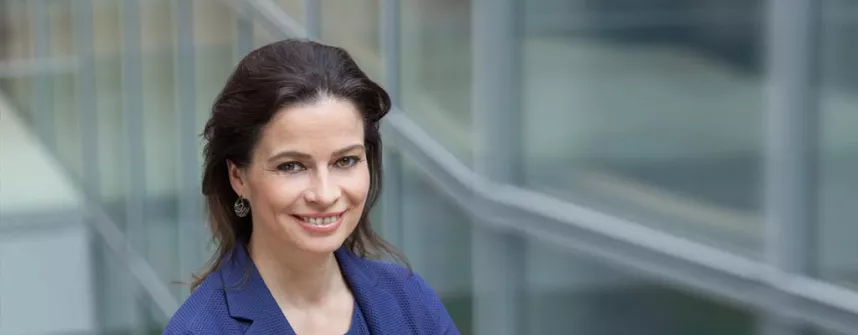Great honor for the President of Jacobs University
,
June 10, 2016 Prof. Dr.-Ing. Katja Windt, President of Jacobs University in Bremen, has been made a member of the National Academy of Sciences Leopoldina. She thus becomes a member of one of the oldest and most prestigious science academies in the world. “I am very happy to be elected to this academy with its rich tradition – especially because, over the course of my academic career, I have noted repeatedly how enriching it can be to interact with scientists from other disciplines and universities”, says the 47-year-old, who is also a member of the German Academy of Science and Engineering. Windt’s first contacts with the world of science academies reach back twelve years. In 2004 the engineer was called to the “Young Academy” (Junge Akademie) and two years later was elected as its spokesperson. The Young Academy was founded in the year 2000 by the Leopoldina and the Berlin-Brandenburg Academy of Sciences – making it the world’s first academy of young, upcoming scientific talent. “In my time there, I experienced again and again that the most exciting ideas often develop through interdisciplinary thinking”, emphasizes the graduate engineer. “In conversations with a system biologist, for example, it became clear to me how much we as engineering scientists can learn from nature – including and especially in my area, logistics. For instance, in a joint research project, we learned that the metabolism of cells successfully masters complex logistical tasks, enabling us to derive new insights for logistics companies”. The transdisciplinary approach of academies such as the Leopoldina also dovetails quite well with the concept of Jacobs University, “In every regard, we stand for learning, research, and teaching that transcends borders. For one thing, because our students come from more than a hundred countries; for another, because interdisciplinary working is a central part of or concept of study”, says Windt. More than 1500 scientists from more than 30 countries belong to the Leopoldina. The academy was founded in 1652 and is located in Halle an der Saale, Germany. Some of its most prominent members included Johann Wolfgang von Goethe, Charles Darwin, Werner von Siemens, and Marie Curie. As the National Academy of Germany, the Leopoldina has represented German scientists in international committees since 2008 and issues independent statements regarding the scientific bases of political and social questions. In interdisciplinary expert groups, the Leopoldina develops public position statements on current topics, including joint statements with other German, European, and international academies. The Leopoldina promotes scientific and public discussion; it supports young scientific talent, gives awards, carries out research projects, and works to uphold the human rights of persecuted scientists. Additional information at:
http://www.jacobs-university.de/leadership/katja-windt-president
http://www.leopoldina.org
